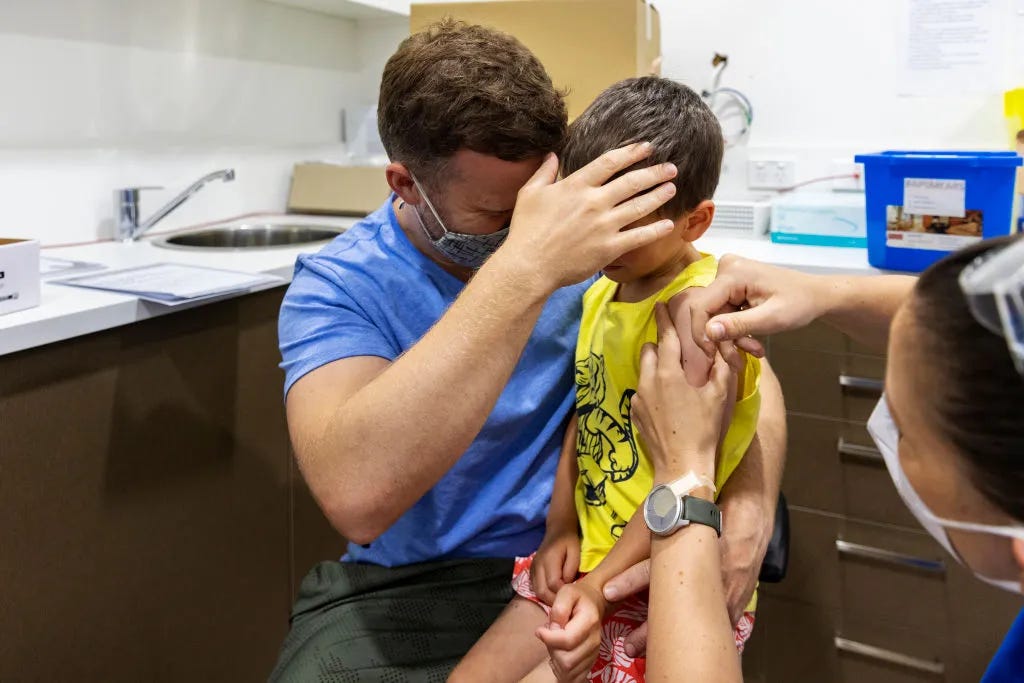Pediatrician Dr. Bose Ravenel and assoc of NCPF Q & A on FDA study granting authorization to vaccinate 6 month to 4 year olds, “children were more likely to contract COVID if they received the shot”
Pediatrician Dr. Bose Ravenel and assoc of NCPF Q & A on FDA study granting authorization to vaccinate 6 month to 4 year olds, “children were more likely to contract COVID if they received the shot”
From NC Physicians for Freedom.
“A group of North Carolina physicians is criticizing the study used to back the U.S. Food and Drug Administration’s (FDA) decision to grant emergency use authorization for COVID-19 vaccines for 6-month to 4-year-old children.’
“It was a weak and underpowered study that in no way proved the efficacy nor safety given the fact that two-thirds of the children that started the study did not complete the study for reasons that are unclear,” Dr. Kristin Strange, a pediatric member with the North Carolina Physicians for Freedom (NCPF), told The Epoch Times.”
Q&A compiled by Dr. Dianna Lightfoot, Dr. Weston Saunders, and Dr. Bose Ravenel of NCPF.
“1. How many children were included in the vaccine trials for 6-month-olds to 4-year-olds?
There were 4526 total children in the Pfizer trial. The trial began with two doses. However, the trial was unblinded on September 28, 2021, and those who had received the placebo were then able to be vaccinated.
This inclusion makes it impossible to maintain a control group and difficult to track safety data.
The numbers by age group are as follows for the start of the trial. Notice how the numbers drop by dose 3:
6 months to 23 months
Trial arm: 1178 but drops to 277 by end of trial
Placebo: 598 but drops to 139 by end of trial
2 to 4 years
Trial arm: 1835 but drops to 481 by end of trial
Placebo: 915 but drops to 209 by end of trial
2. How will the vaccine lower my child's risk of infection/severe outcome?
The trial data indicates that there is very little, if any, reduced risk of either infection or a severe outcome for your child. The lowered risk of infection was only measured for less than two months and that started 7 days after the third injection. There were 10 cases of COVID-19 during this period...3 in the trial group and 7 in the placebo group.
This is how they determined 80% efficacy (based on breakdown of trial age groups). The trial stopped after 60 days and some children were not tracked after 35 to 40 days.
Of note, during the trial between shot 1 and 2 there was negative efficacy of 29-31% for those in the trial group. That means that children were more likely to contract COVID if they received the shot than those that received the placebo.
Additionally, other than the 10 cases mentioned, all other segments of the study showed that the children who received the placebo had fewer cases of COVID.
After dose 2 in the 2- to 4-year-old group, there were 7 cases of severe COVID. Six of these cases were in the trial group and 1 case in the placebo.
During the trial there were 12 incidences of COVID recurring. 11 of these cases were in the trial group and only 1 case in the placebo.”



